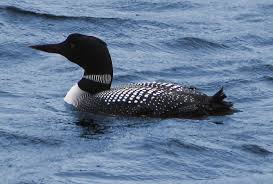 By Danica Hampton After briefly dipping below 0.7250 yesterday morning, the NZD/USD rebounded and pushed above 0.7300 last night. Most of last night's NZD/USD strength is attributable to USD weakness.
By Danica Hampton After briefly dipping below 0.7250 yesterday morning, the NZD/USD rebounded and pushed above 0.7300 last night. Most of last night's NZD/USD strength is attributable to USD weakness.  It was a hattrick of events that conspired against the USD last night. The Russian central bank announced it was diversifying its foreign reserves into Canadian dollars (CAD). (The CAD is often referred to as the loonie.) USD/CHF fell below parity for the first time in 14 months after the Swiss National Bank hinted that it was close to tightening monetary conditions. And gold prices surged to fresh record highs, which helped underpin commodity prices and commodity-linked currencies.
It was a hattrick of events that conspired against the USD last night. The Russian central bank announced it was diversifying its foreign reserves into Canadian dollars (CAD). (The CAD is often referred to as the loonie.) USD/CHF fell below parity for the first time in 14 months after the Swiss National Bank hinted that it was close to tightening monetary conditions. And gold prices surged to fresh record highs, which helped underpin commodity prices and commodity-linked currencies.
There's been renewed interest in NZD/AUD over the past 24 hours. RBA Deputy Governor Battelino stole the spotlight with his upbeat assessment of the Australian economic outlook. This sparked a surge in AUD and encouraged a wave of NZD/AUD selling. NZD/AUD broke below the key support of 0.7880 and sank to below 0.7850. Steady supply of NZD/AUD has helped temper the gains in NZD/USD. Given the renewed interest in NZD/AUD, it will be worth keeping an eye on today's Q3 Australian cappex data. A stronger-than-expected result could well provide the impetus for a push back towards 0.7800. While we see some risk of NZD/AUD pushing a little lower in the next week or so, we don't see a compelling fundamental reason for NZD/AUD to break below its year-to-date low of close to 0.7700. NZD/AUD is already at very low levels relative to history and we believe the relatively weaker NZ economic outlook is already priced into the NZD/AUD (it's currently about 10% below its long-term equilibrium level). Yes, the RBA is expected to tighten monetary policy more aggressively than the RBNZ "“ and this suggests some downside risks to NZD/AUD. But NZ commodity prices have tended to appreciate at a more rapid pace than Australian commodity prices and this suggests some upside risks to NZD/AUD. All up, we suspect NZD/AUD will spent most of its time over the next few months in a 0.7800-0.8200 range. Locally, today's NBNZ business survey will be a key focus. While the improved dairy payout will no doubt help, we wonder if broader reservations about the strength and sustainability of the recovery are beginning to creep into the NZ business sector. For today, in the absence of a major surprise from the NBNZ business survey, we suspect NZD/USD will continue to tread water within familiar ranges. We suspect dips will be limited to the 0.7220-0.7240 region. Headwinds are expected towards 0.7350-0.7360. The USD weakened against all the major currencies last night. Not only did the Russian's suggest they were diversifying their foreign reserves, but comments from the Swiss National Bank saw CHF strengthen markedly and gold reached fresh highs. Russia's cental bank announced that it was preparing to diversify its foreign reserves. It said "technical preparations are underway for operations with Canadian dollars". The news saw USD/CAD sink nearly 1% from 1.0550 to around 1.0450. While any CAD holdings will likely be small, the affirmation that Russia are actually trying to reduce their dependence on the USD paved the way for broad-based USD weakness. The CHF strengthened markedly after the Swiss National Bank hinted that it was close to tightening monetary conditions. Chairman Roth said in light of the economic turnaround the massive stimulus measures would "have to be corrected soon to preserve medium-term price stability". In reaction, USD/CHF skidded from above 1.0080 to below 1.0000 "“ below parity for the first time in 14 months. Gold prices continued to surge higher last night, which tended to underpin commodity currencies and add to the weight on the USD. India's Finance Chronicle newspaper reported that India is open to buying more gold from the IMF (the IMF plans to sell another 200 tonnes of gold). Talk that Asian central banks are planning to diversify foreign reserve holdings by buying gold has also helped underpin prices. Gold prices climbed from below US$1,170 to above US$1,187 last night and are up nearly 3% for the week. Against a generally weaker USD, EUR/USD surged from sub-1.5000 to above 1.5100. The Eurozone-specific news wasn't particularly positive. The Bundesbank warned that German banks could face another EUR90b of write-downs. Reports suggest the IMF will tell Eurozone finance ministers that the EUR is overvalued, but it also warned that a slow exit from its emergency stimulus measures could see it rise further. The economic news hasn't been too bad. Yesterday's FOMC minutes affirmed expectations that US interest rates will stay close to zero until mid-2010. Last night's US data was a bit of mixed bag. Durable goods was on the soft side, while the University of Michigan consumer confidence, new home sales and personal income/spending data was a touch stronger. Meantime, UK Q3 GDP was revised higher to -0.3%q/q from the prior estimate of -0.4%. * Danica Hampton is BNZ's Senior Currency Strategist. All of the research produced by the BNZ Capital team of economists is available here.
We welcome your comments below. If you are not already registered, please register to comment
Remember we welcome robust, respectful and insightful debate. We don't welcome abusive or defamatory comments and will de-register those repeatedly making such comments. Our current comment policy is here.